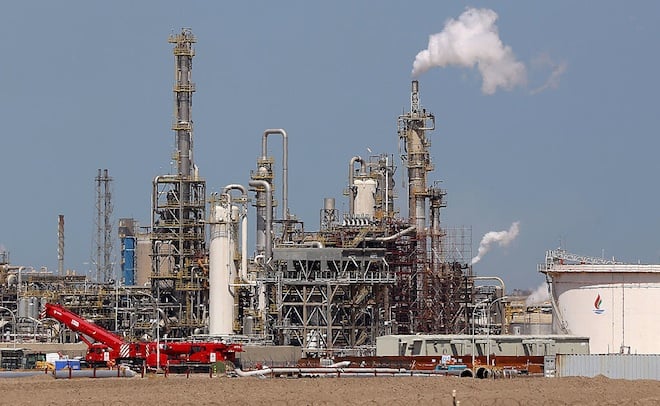Oil and gas refineries remains an infrastructures that play a vital role in producing gasoline, diesel, jet fuel, and other refined petroleum products. The cost associated with the construction for oil refineries are complex and extensive process that requires advanced technology, skilled labor, and significant financial resources. Advanced project finance tools, loans from private investment funds, leasing and other financial mechanisms help to attract long-term loans and capital necessary for the development of such projects around the world.
Viola Funding Limited can provide your business with a long-term loan and a detailed advice regarding cost of construction for oil refineries.
Basic factors militating the construction cost of oil refineries
The cost of construction for oil refineries depends on various factors such as the facility location, size, complexity, and technology used.
A) The size and technical complexity of the refinery also influence the total construction cost. More complex refineries require specialized equipment, technology, and skilled labor, leading to a higher cost. For example, the construction cost of the Mina Al-Ahmadi Refinery in Kuwait, one of the largest in the world, was over $5 billion due to its huge size and expensive technologies.
B) The facility location plays a vital role in determining the cost of constructing an oil refinery. The investment cost could vary depending on whether it’s built in an urban or rural area. Urban areas usually require expensive land acquisition and higher labor costs, while rural areas may require more significant investment in infrastructure, transportation, and logistics.
Constructing an oil refinery is a complex task that requires significant financial resources due to several factors.
Location, size, technology used, government regulations, environmental standards, labor, and material availability are factors that play a vital role in determining the construction cost. To construct an oil refinery cost-effectively, companies must ensure that they conduct extensive research and consider all the factors that could impact the cost. However, it’s worth the investment efforts since oil refineries still play a critical role in the global economy and energy sector.
Sources of financing for the construction of refineries
The construction and establishment of oil refineries require adequate financing sources to ensure the success of the investment project. Our financial experts can advise you in detail on the most suitable financial sources used in the construction of oil refineries.
Oil refinery and petroleum storage depot construction is an ambitious undertaking that requires a substantial amount of capital investment.
Equity financing is a common financing source used in the construction of oil refineries. Equity financing involves selling ownership of a refinery to potential investors. The investors become shareholders in the refinery. The risk and returns are shared among the shareholders.
Advantages of equity financing include avoiding the risk of defaulting on loans, the absence of repayment obligations, and the equity financing investment may result in significant returns.
In conclusion, financing sources for oil refinery construction vary as shown in the examples above. Equity financing, debt financing, and government financing are not exhaustive.
Investments in oil refineries of most countries
Oil is one of the most sought-after natural resources in the world. It is an important source of energy that fuels different sectors of the economy, including transportation, agriculture, manufacturing, and many more.
As a result, most countries with oil reserves often invest in oil refinery construction to refine crude oil for various applications. Many countries have invested heavily in oil refinery construction, which helps to boost the economy.
Russia is another country that invests heavily in oil refinery construction.
China is the world’s largest importer of crude oil, and as such, it has invested significantly in oil refinery construction. The country’s refining capacity was 17.5 million bpd in 2021, and it plans to increase its refining capacity to 20 million bpd by 2025. China’s largest oil refineries are located in Shandong, Guangdong, and Zhejiang provinces, and these refineries account for about 40% of the country’s refining capacity.
Please contact Viola Funding Limited, If you are looking for long-term financing for the construction of refineries and petroleum storage depots, labor pipelines, oil terminals and other related infrastructure,
Our underwritten team is ready to provide you with access to project finance, flexible and large loans, leasing schemes and other mechanisms.
eMAIL:[email protected]
